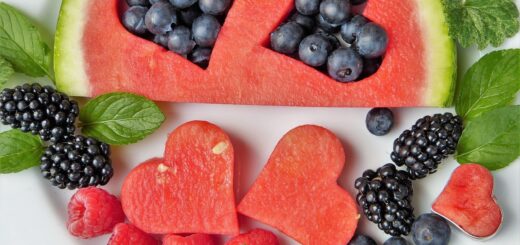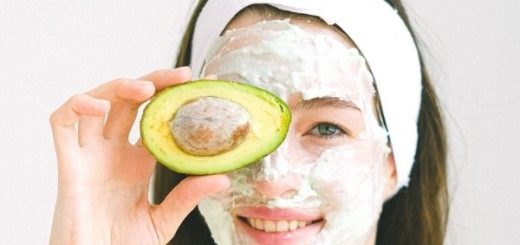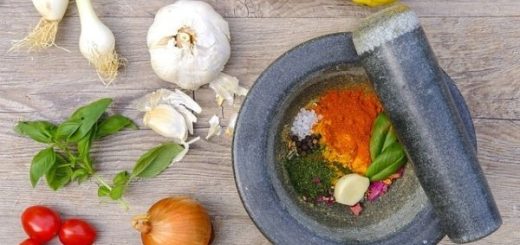The Relationship Between Food and Sleep: Eat to Sleep Better

There is a close relationship between food and sleep. Both factors influence our well-being significantly. It is important that we have a good diet, since it helps us perform better during the day and rest properly at night.
At the same time, it is essential that we get enough sleep to stay healthy. In this article, we will explore the relationship between food and sleep, foods that influence sleep, and how to improve the quality of your sleep with good nutrition.
What is sleep quality?
Sleep quality refers to the subjective perception of how rested or refreshed you feel after sleeping. It is generally considered good if it produces feelings of restored energy, motivation, and well-being.
Sleep quality is often determined by how well a person’s sleep schedule aligns with their circadian rhythm, or natural biological clock. Factors that can affect sleep quality include noise, light, temperature, bed comfort, and stress levels.
Eating a balanced diet and limiting foods that disrupt sleep can also help ensure good quality sleep.
What is the relationship between sleep and food?
Sleep has important biological functions in many physiological processes including learning, memory, and cognition.
Restricting sleep to less than 6 hours per night for four or more consecutive nights has been shown to affect ( 1 ):
- Cognitive performance
- mood
- sugar metabolism
- Appetite regulation
- Immune function
Several neurotransmitters are associated with the sleep-wake cycle:
- Serotonin
- Gamma-aminobutyric acid (GABA)
- Melatonin
- Galanin
- Norepinephrine
- Histamine
Of these, the most related to food and sleep are serotonin and melatonin .
For its part, tryptophan is an amino acid that is also associated with sleep, since it influences the production of serotonin. We’ll see how they work.
Serotonin
Serotonin plays a role in sleep quality by helping to regulate the body’s natural sleep-wake cycle ( 2 ). It does this by acting as a neurotransmitter, which sends signals between nerve cells.
When serotonin levels are low, it can cause difficulty falling asleep and staying asleep.
Tryptophan
Certain foods can influence how quickly certain neurotransmitters are produced. Serotonin is an example of a neurotransmitter that can be influenced in this way.
Serotonin synthesis depends in part on the availability of its precursor, the amino acid called L-tryptophan. This is an essential amino acid. This means your body can’t produce it, so you have to get it from your diet. Foods rich in tryptophan include poultry, seafood, eggs, nuts, seeds, and dairy products.
Tryptophan is also necessary for melatonin production ( 3 ).
Melatonin
Melatonin is a hormone that helps regulate the body’s natural sleep-wake cycle ( 4 ). It is produced in the brain by the pineal gland, and melatonin levels increase as it gets dark and decrease as it gets light.
Melatonin plays an important role in sleep quality and can help improve sleep latency (the time it takes to fall asleep), total sleep time, and sleep efficiency.
In addition to being produced in the body, there are foods that contain melatonin. Although it is not yet known whether foods rich in melatonin have enough of this hormone to promote sleep ( 5 ), melatonin continues to generate interest in the scientific community and the general public.
What foods help you fall asleep?
It’s hard to say which are the best foods for sleep. This is because sleep is a complicated process that is affected by many things, such as our mental health, the amount of light we are exposed to, and any physical problems we may have.
The diet is also complicated. It is not just an isolated food: it depends on when and how much we eat throughout the day and over weeks, months and years. People can react differently to different diets, so it’s hard to say what the perfect diet is for everyone.
This makes it difficult to conduct research studies that provide conclusive answers about the best food for sleep. However, here are the foods that CAN help improve sleep quality, according to studies so far:
- Tart Cherry Juice:This is likely attributable to the melatonin, serotonin, and other phytonutrient content within the fruit ( 6 ). Tart cherries have above average melatonin concentrations. Tart cherries may also have an antioxidant effect that promotes sleep.
- Milk:Milk contains melatonin and some dairy products are fortified with melatonin. Interestingly, when cows are milked at night, their milk has more melatonin ( 7 ), and this milk may be useful in providing a natural source of the sleep-producing hormone. Additionally, milk is rich in tryptophan.
- Turkey:Turkey is reputed to cause tiredness and sleepiness after eating it. In particular, turkey contains the amino acid tryptophan, which increases the production of melatonin ( 8 ) and serotonin.
- Fatty fish:It is believed that fatty fish (salmon, albacore tuna) can help you sleep as they are rich in vitamin D and omega-3 fatty acids ( 9 ), which are involved in regulating serotonin in the body.
- Walnuts( dried fruits ): Walnuts are rich in magnesium. Magnesium is thought to help in promoting sleep due to its ability to reduce inflammation (10 ). Additionally, it can help reduce levels of the stress hormone cortisol, which is known to disrupt sleep.
- Kiwi:Some research has found that eating kiwis can improve sleep. In one study ( 11 ), people who ate two kiwis an hour before bed found they slept better and longer. The reason kiwis may help with sleep is not known for certain, but researchers believe it could be due to the antioxidants they contain or their high concentration of serotonin.
- Oats: Oats are a good source of melatonin. In addition, the carbohydrates it contains improve the availability of tryptophan in the brain.
- Chamomile tea:Chamomile tea contains apigenin ( 12 ). This antioxidant binds to certain receptors in your brain that can promote drowsiness and reduce insomnia.
What foods can affect sleep?
There are some foods that can have negative effects on sleep. Coffee , energy drinks, and chocolate are known to disrupt sleep, due to their caffeine content, which is a stimulant.
Alcohol can also have a negative effect on sleep quality. Research ( 13 ) indicates that alcohol can shorten sleep duration, reduce sleep quality, and cause you to wake up during the night. Additionally, alcohol can cause snoring and other breathing problems that interfere with sleep.
Eating large meals close to bedtime can also lead to poor sleep quality. A heavy meal can affect sleep quality in several ways.
First, it can take a long time to digest, which can keep you awake at night. Additionally, a large meal can cause indigestion or heartburn, which can also interfere with sleep. It is advisable not to eat heavy meals 2-3 hours before going to sleep.
Tips to improve sleep quality
There are a few things you can do to improve your sleep hygiene and get a good night’s sleep. Some tips include:
- Establish a regular sleep schedule. Go to bed and wake up at the same time every day, even on weekends. This will help your body establish a routine and make it easier to fall asleep.
- Avoid caffeine and alcohol before bed.Caffeine can keep you awake and alcohol can make it difficult to fall asleep and stay asleep.
- Avoid working or using electronic devices in bed. Bright light from screens can keep you awake, so try to avoid using electronic devices in the hours before bedtime.
- Get some exercise during the day.Exercise helps promote good sleep, but try to avoid exercising right before bed, as it can be energizing. Click here for intuitive exercise ideas .
- Make your bedroom dark, quiet and comfortable.Keep the room cool and dark, and use a noise machine or earplugs if necessary to create a quiet environment. Weighted blankets can also be a relaxing option.
Conclusion
It is clear that food and sleep have a close relationship. What we eat can have a significant impact on the quality of our sleep. If you’re struggling to get the deep, restful sleep you need, take a look at your diet to see if there are any changes you can make.
Start by avoiding caffeine and alcohol before bed, and eat foods that help you relax rather than keep you awake. With a little effort, you should start to see an improvement in the quality of your sleep in no time. Thank you for joining me on this journey into sleep science!











